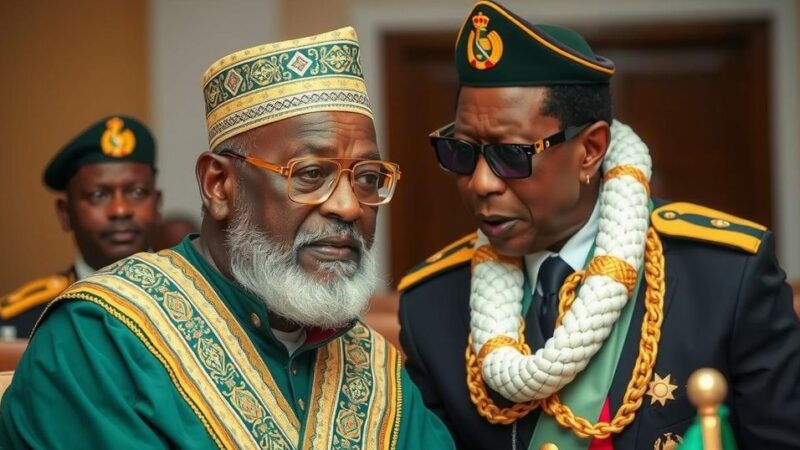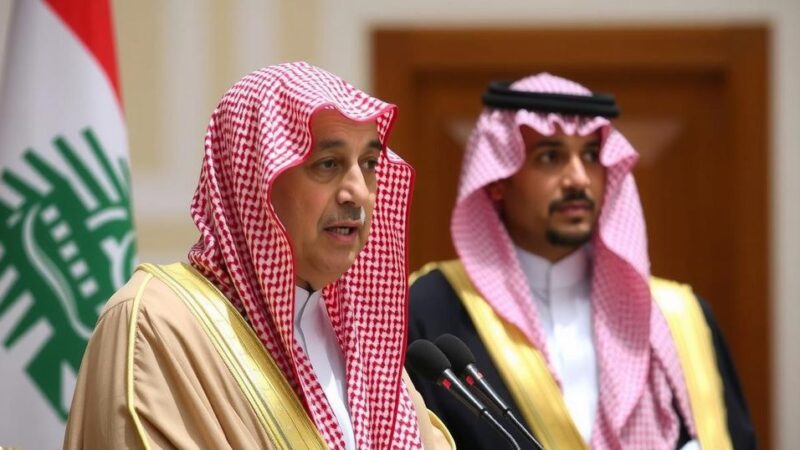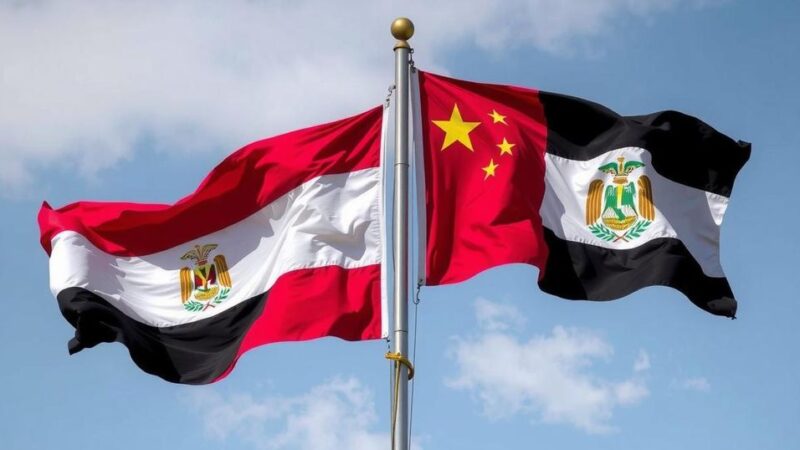Lebanon’s Prime Minister Najib Mikati visited Damascus, the first such visit since the Syrian civil war began in 2011, to establish lasting ties with Syria’s new leader Ahmed al-Sharaa. Both leaders emphasized mutual respect, the urgent repatriation of Syrian refugees, and the need for better border control. They seek to overcome previous tensions through dialogue and cooperation, sparked by Lebanon’s recent political developments.
In a significant development following years of strained relations, Prime Minister Najib Mikati of Lebanon visited Damascus, marking the first official visit by a Lebanese premier since the Syrian civil war began in 2011. During this visit, Mikati and Syria’s new leader Ahmed al-Sharaa expressed a commitment to establish enduring ties between their nations. Both leaders emphasized the necessity of building a relationship founded on mutual respect and national sovereignty. Sharaa declared that the new Syria aims to maintain neutrality towards Lebanon and prioritize dialogue to address longstanding issues. Additionally, Mikati highlighted the urgent need for the repatriation of approximately two million Syrian refugees currently residing in Lebanon, recognizing it as a critical matter for both countries. The Lebanese Prime Minister also called for heightened efforts to delineate borders and combat smuggling along the extensive and largely unmarked Lebanon-Syria border. Sharaa reiterated the shared interests of the two countries and expressed hope that recent political changes in Lebanon could foster stability in the region. This diplomatic thaw is taking place amidst a backdrop of changing regional dynamics and growing foreign diplomatic engagement with the new Syrian leadership.
The history of Lebanon-Syria relations has been marked by periods of intense cooperation and conflict. For decades, Syria exerted significant influence over Lebanon, especially during the Lebanese civil war from 1975 to 1990, culminating in a military presence that persisted until the withdrawal of Syrian troops in 2005. The onset of the Syrian civil war in 2011 resulted in a deepening crisis in both countries, with Lebanon grappling with the influx of Syrian refugees and the political implications of Hezbollah’s support for the Assad regime. Recent changes in leadership positions in both nations appear to provide a platform for renewed dialogue and collaboration, particularly following the election of Lebanese President Joseph Aoun. The ongoing economic struggles in Lebanon further underscore the urgency of addressing bilateral challenges, including smuggling and border delineation.
The recent visit of Prime Minister Najib Mikati to Damascus signifies a potential turning point in Lebanese-Syrian relations after years of tension. Leaders from both nations have expressed their commitment to building a relationship grounded in mutual respect and cooperation. As they confront longstanding challenges together, including the Syrian refugee crisis and border security issues, the development of these ties may offer a pathway towards greater stability for both Lebanon and Syria in the region.
Original Source: www.northwestsignal.net







